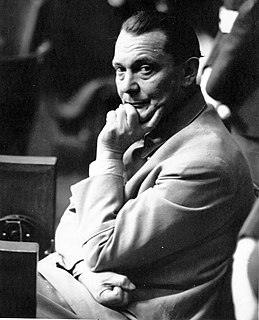A Quote by Dave Eggers
Maybe he hadn't thought the war through. It had seemed like simple fun when he had first pictured it, with a glorious beginning, a difficult but valor-filled middle, and a victorious end. He hadn't accounted for the fact that there might not be much of a resolution to the battle, and he hadn't imagined what it would feel like when the war just sort of ended, without anyone admitting defeat and congratulating him for his bravery.
Related Quotes
When Luke had descended into the River Styx, he would've had to focus on something important that would hold him to his mortal life. Otherwise he would've dissolved. I had seen Annabeth, and I had a feeling he had too. He had pictured that scene Hestia showed me—of himself in the good old days with Thalia and Annabeth, when he promised they would be a family. Hurting Annabeth in battle had shocked him into remembering that promise. It had allowed his mortal conscience to take over again, and defeat Kronos. His weak spot—his Achilles heel—had saved us all
Virtually every war fought since the Act of Union had gone badly at some stage, but before 1783 none had ended in defeat. Nor would any major war in which Britain was involved after this date end in defeat. Those who are curious about this country's peculiar social and political stability probably need look no further than this for essential cause.
She couldn't think of anyone else who remotely resembled him. He was complicated, almost contradictory in so many ways, yet simple, a strangely erotic combination. On the surface he was a country boy, home from war, and he probably saw himself in those terms. Yet there was so much more to him. Perhaps it was the poetry that made him different, or perhaps it was the values his father had instilled in him, growing up. Either way, he seemed to savor life more fully than others appeared to, and that was what had first attracted her to him.
Anyone who has ever studied the history of American diplomacy, especially military diplomacy, knows that you might start in a war with certain things on your mind as a purpose of what you are doing, but in the end, you found yourself fighting for entirely different things that you had never thought of before. In other words, war has a momentum of its own and it carries you away from all thoughtful intentions when you get into it. Today, if we went into Iraq, like the president would like us to do, you know where you begin. You never know where you are going to end.
If [Ho Chi Minh] had had carte blanche over his movement, would the results of the war have been different? That is difficult to say. In some cases - as in 1945 and 1946, he appeared to overestimate the possibility that the United States might decide to recognize his government and the independence of the DRV (although to be fair, from the outset he had warned that Washington might eventually decide to align with the French because of the Cold War).
I can't say with certainty that slavery would have ended more quickly and more completely if the South had been allowed to leave and escaped former slaves had been allowed to remain free, and the North and the rest of the world had been a positive influence on the South. However, it's certainly a possibility that it would have ended sooner if the southern slave owners had agreed to a system of compensated emancipation and freed the slaves without a war and without secession, as most nations that ended slavery did. That absolutely would have been preferable to the Civil War as it happened.
In my head, thought, I would love to do an interview where it's just sort of de-constructed - the talking points of Iraq - sort of the idea of, is this really the conversation we're having about this war? That if we don't defeat Al Qaeda in Iraq, they'll follow us home? That to support the troops means not to question that the surge could work. That, what we're really seeing in Iraq is not a terrible war, but in fact, just the media's portrayal of it.
Particularly when the war power is invoked to do things to the liberties of people, or to their property or economy that only indirectly affect conduct of the war and do not relate to the engagement of the war itself, the constitutional basis should be scrutinized with care. ... I would not be willing to hold that war powers may be indefinitely prolonged merely by keeping legally alive a state of war that had in fact ended. I cannot accept the argument that war powers last as long as the effects and consequences of war for if so they are permanent -- as permanent as the war debts.
After the end of the cold war, everybody thought, fantastic, finally the UN may be able to do what it was originally set up to do without big power divisions. It would be easy to get them to come together to resolve things. You will recall, on the first Gulf war, you almost got a unanimous resolution and a very solid coalition.
There are a lot of war memorials around the UK. It's usually a part of the war memorials. I loved the way The Glorious Dead sounded. It's kind of a strange thing to say. There's nothing particularly glorious about being dead. It sounded like a strange, horror film. It just grew from there, really. It seemed quite apt for the record. We're kind of obsessed with zombie movies and horror films. It seemed like it just fit, at the time.
To me there are two Hitlers: one who existed until the end of the French war; the other begins with the Russian campaign. In the beginning he was genial and pleasant. He would have extraordinary willpower and unheard-of influence on people. The important thing to remember is that the first Hitler, the man who I knew until the end of the French war, had much charm and goodwill. He was always frank. The second Hitler, who existed from the beginning of the Russian campaign until his suicide, was always suspicious, easily upset, and tense. He was distrustful to an extreme degree.
For some reason a nation feels as shy about admitting that it ever went forth to war for the sake of more wealth as a man would about admitting that he had accepted an invitation just for the sake of the food. This is one of humanity's most profound imbecilities, as perhaps the only justification for asking one's fellowmen to endure the horrors of war would be the knowledge that if they did not fight they would starve.
I was after a set of pictures, so that when people looked at them they would say, ‘This is war’-that the people who were in the war would believe that I had truthfully captured what they had gone through I worked in the framework that war is horrible. I want to carry on what I have tried to do in these pictures. War is a concentrated unit in the world and these things are clearly and cleanly seen. Things like race prejudice, poverty, hatred and bigotry are sprawling things in civilian life, and not so easy to define as war.
... everything seemed to him a uniform shade of gray- even the people! He had been unable to believe it could rain so much in one place, and so unceasingly. The damp had seemed to come up from the floors and into his bones, so that he'd thought he would eventually sprout mold, in the manner of a tree. "You do get used to it," he said "Even if sometimes you feel as if you out to be able to be wrung out like a washrag." p 311






































